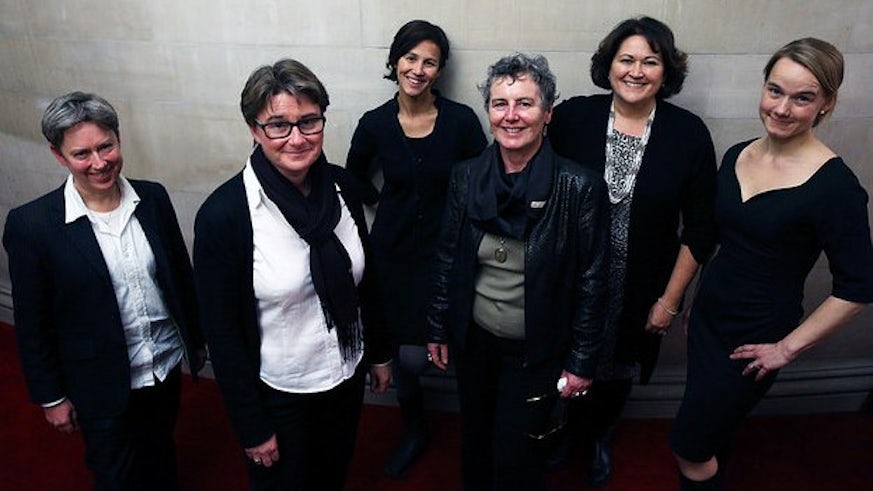Women in Leadership: Stereotypes, Structure and Change
4 Rhagfyr 2014

Nearly 100 people including academics and representatives of the public, private and voluntary sectors, as well as members of the general public, attended the recent Women in Leadership seminar at Cardiff University.
This seminar – organised by Dr Amanda Kidd and Jo Hall from Women Adding Value to the Economy (WAVE) - featured guest speakers from Bath and Exeter universities to discuss the barriers and other issues surrounding women's progression to leadership positions. The Opening Address was delivered by Dame Rosemary Butler, Presiding Officer of the National Assembly for Wales, who champions the need for more women to have influence at senior level in public life.
The audience heard arguments that the pathway to business leadership needs to become more flexible if the economy is to benefit from the talents of women at the top. Dr Alison Parken, who leads the WAVE research team within the School of Social Sciences, warned that the 'straight road-race of career-long full-time working' to reach the top needed to change to account for the diversions many women need to take during their working lives.
Referring to major employers' recent proposals that women could 'freeze their eggs' so they can climb the management ladder, Dr Parken said: "They're essentially asking women to mirror men's traditional labour market pathways – and to 'lean-in' on that basis. Updating old-fashioned breadwinner v homemaker stereotypes that still underpin such inflexibility in the workforce would seem to be a better idea. Flexible working methods should reflect diversity between and among men and women, and reward them for the work that they do rather than how long they sit at their desks."
Professor Michelle Ryan of Exeter University spoke at the event, discussing her research on the 'glass cliff' that demonstrates how women are more often seen as suitable leadership candidates when organisations are failing and need turning around. Dr Johanne Grosvold of Bath University highlighted other barriers to women's success at the top, speaking about her research which shows how in societies that are less reliant on a breadwinner/ homemaker model and which offer good quality affordable childcare and welfare provision, there are proportionately more women on boards than countries like the UK, which has a corporatist system.
This event was run in association with Chwarae Teg who are currently leading the 50:50 by 2020 campaign to achieve gender balance on boards and other decision-making bodies within the next six years. Dr Parken described the seminar as: "a great opportunity to deliver important research findings to illuminate the women in leadership debate and encourage change in policy and practice."
The WAVE programme is funded by the European Social Fund through the Welsh Government and aims to tackle gender earning disparities in the workplace.